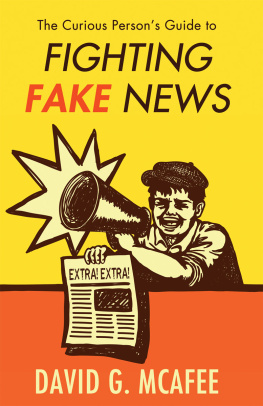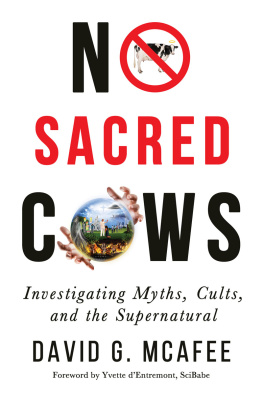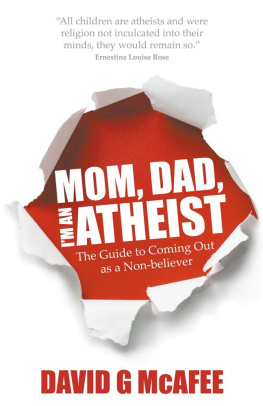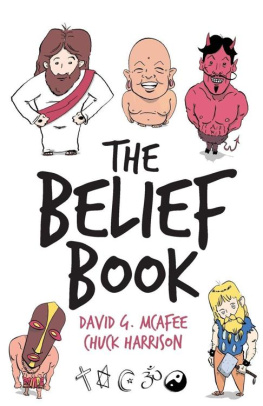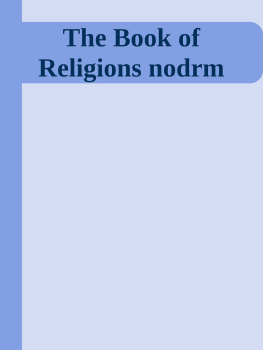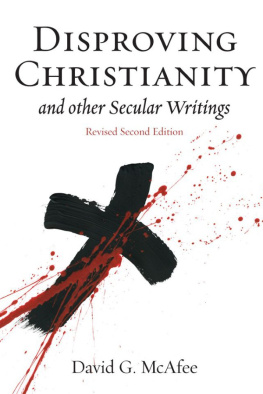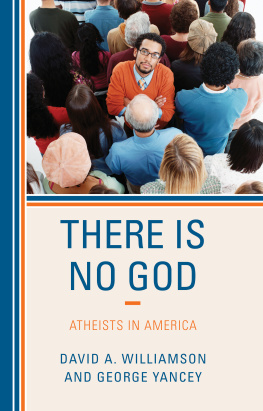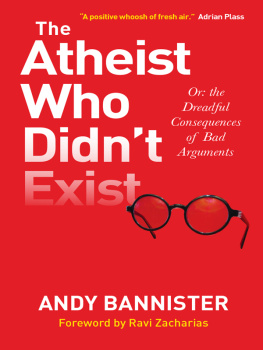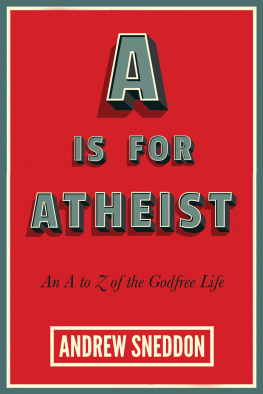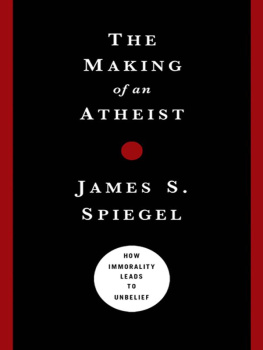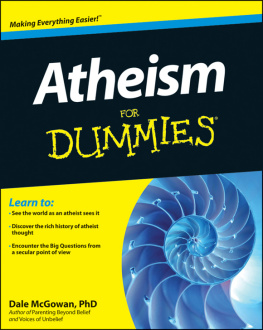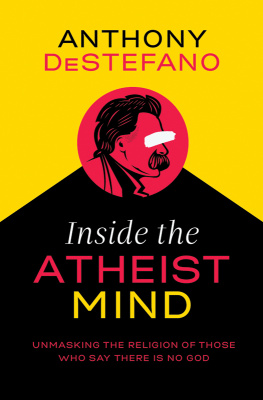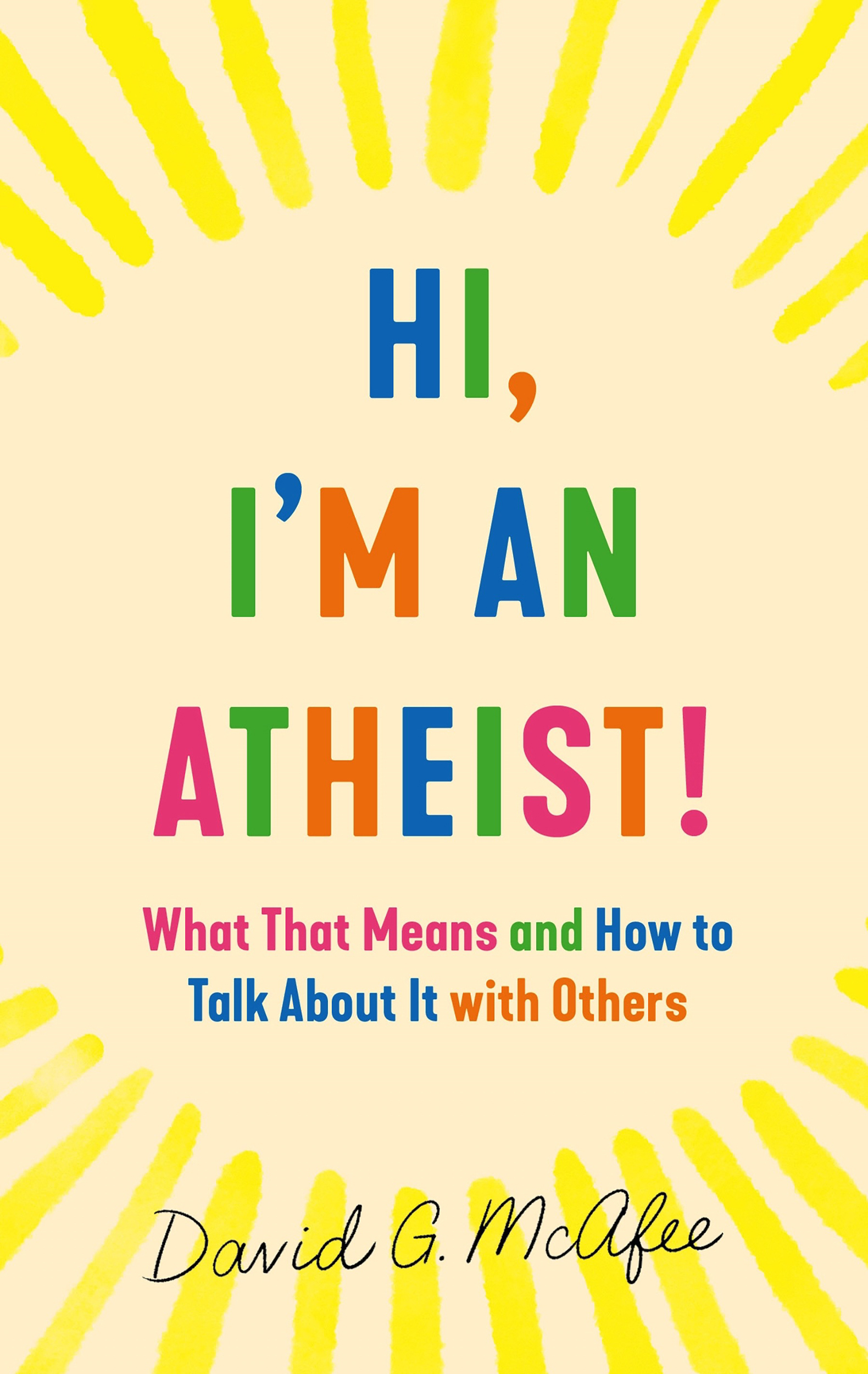Contents
Guide
Pagebreaks of the print version

The author and publisher have provided this e-book to you for your personal use only. You may not make this e-book publicly available in any way. Copyright infringement is against the law. If you believe the copy of this e-book you are reading infringes on the authors copyright, please notify the publisher at: us.macmillanusa.com/piracy.
To my mom and dad, who never let differences of opinion stand in the way of treating me with love and respect, and to my loveldedy wife, Rae
Hi, Im an atheist. Its amazing how much those few words can accomplish at times, especially considering that one sentence doesnt really tell you much about me. It tells you I dont believe in any deities. It tells you Im probably not part of an organized religion. But it doesnt tell you anything about my goals, what I value, or the moral philosophies on which I base my life. It doesnt let you know where my passions lie, nor does it reveal that the smell of lemons always brings a smile to my face, in part because it reminds me of the farm my grandparents had when I was growing up.
In the grand scheme of things, my simple identification as a nonbeliever in god(s) gives you almost no helpful information about who I really am as a person. Yet hearing that simple sentenceIm an atheistcan be perceived as confrontational by some people. It can also cause certain believers to assume the worst of someone, spawning thoughts of devil worshippers conjuring ancient spirits in velvet robes at night. In some regions of the world, that statement can also result in threats, discrimination, and even physical violence from believers. Even as I write this in the 2020s, there are a few nations where being open about ones lack of faith can result in government-ordered execution.
Contrary to the stigma against atheism in many places throughout the world, theres nothing wrong with being an atheist or talking openly about it. And theres nothing about saying, Im an atheist, that is inherently hateful, condescending, or in your face. Its the same as saying, Im unconvinced. So, what does it actually mean to be an atheist? It simply means that you dont believe in any divine figures. So, the devil worshipper from the scenario described above couldnt be an atheist, by definition. The devil is just another side of the god coin.
The atheist label doesnt even describe the certainty with which you hold your beliefs, or lack thereof. Just as is the case with believers, one individual might be completely certain while another may have numerous serious doubts. An atheist or a theist would be equally capable of being agnostic in terms of their knowledge while still expressing their personal beliefs.
You probably know lots of atheists, even if you dont know it. They can be any age or gender and have any political orientation in the world. According to the latest data, 3.1 percent of people in the United States are atheists who openly refer to themselves as such. Considering that research led by a Columbia professor has shown that the average American knows about 600 people, we can safely say that the typical person in the United States knows about 18.6 avowed nonbelievers. Thats pretty surprising, right? And it kind of makes you wonder about that 0.6 of a person.
Well, what if I told you that number might be even higher than people think? To understand why, we first must learn about the stigma associated with the word atheism itself. For starters, Americans admit to feeling cold toward atheists, a designation that is less trusted than just about every faith out there, according to the Pew Research Center. But even beyond that, the United States has a vast Christian population and even Christian-influenced culture. As such, theres an unbelievable amount of misinformation out there, often beginning with fire-and-brimstone preachers spreading it to their unsuspecting flock, about atheists and what we actually believe. Although Christianity is most popular, atheists coming from non-Christian religious groups, such as Judaism, Islam, Hinduism, and even theistic Buddhism, can also be the victims of religious misinformation like this.
When some people hear the word atheist, they dont think about someone who lacks belief in deities. Instead, because of the negative connotations, a lot of people think about demons or Satan worshippers, or maybe just an arrogant know-it-all who claims that there are no gods. Either way, these stereotypes are in some cases exaggerations and in others impossible. We cant control what people think of or associate with atheism, but we can do our best to reshape the narrative and spread facts, all while encouraging atheists to be themselves.
Thats what I hope to do with this book.
It is an interesting and demonstrable fact, that all children are atheists and were religion not inculcated into their minds, they would remain so.
ERNESTINE LOUISE ROSE, SUFFRAGIST, ABOLITIONIST, AND FREETHINKER
To properly understand this guide to talking openly to others about atheism, some might wish to learn more about the particular context in which I, as a secular author, am writing.
The way I see it, everybody is born an atheist, and without submersion into religion as a child, we would most likely maintain that position. More often than not, however, this is not the case. In most instances, a child is taught early on that their parents religion is the truthand all others are evil. This mindset is rarely shaken, and those beliefs are often passed to further generations. Luckily, for me, that didnt happen.
I dont remember a particular time in my life in which I believed in the validity of a particular religious tradition. But, eventually, even I had to break the news to my family and become open regarding my secular mindset. That is because I lived in the United States, where theism is the assumed position.
My parents were not always religious people; they may have abused substances religiouslybut when I was very young, church was probably the last thing on their minds. When I was two years old, my parents divorced and began their separate lives pursuing drugs to feed their addictions; thankfully, my grandmother volunteered to care for me until my mother or father could afford (financially and emotionally) to raise me. She never mistreated me or abused me, but she was the first person in my life to introduce me to religion and the authority of the Christian church. My grandparents with whom I spent the majority of my early childhood considered themselves Fundamentalist Baptist Christiansand I was raised in a way that, they thought, would encourage similar ideologies in me.
When I was a bit olderaround six years oldI went to a Christian church with my grandparents; this was my first real experience with a religious institution. The church, located in a small town in Northern California, considered itself nondenominational, and the service usually consisted of a pastor reciting well-chosen biblical passages for about an hour and providing some minor inspirational interpretations. I attended sporadically, but needless to say, I was not moved by the experience and didnt take the idea of church seriously. Even though this doctrine was being force-fed to me for as long as I could remember, I always had questions about its veracityquestions that, I quickly learned, were considered inappropriate to ask.


